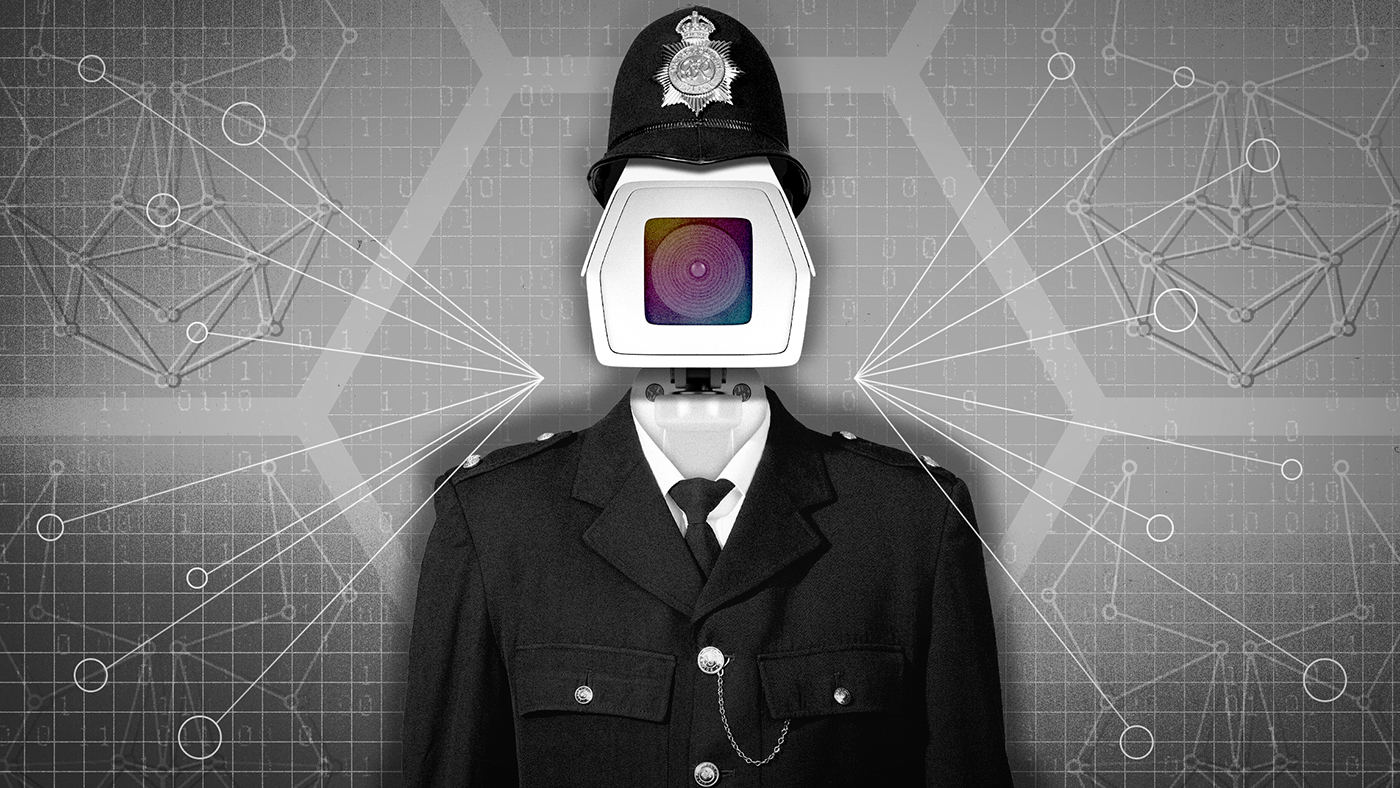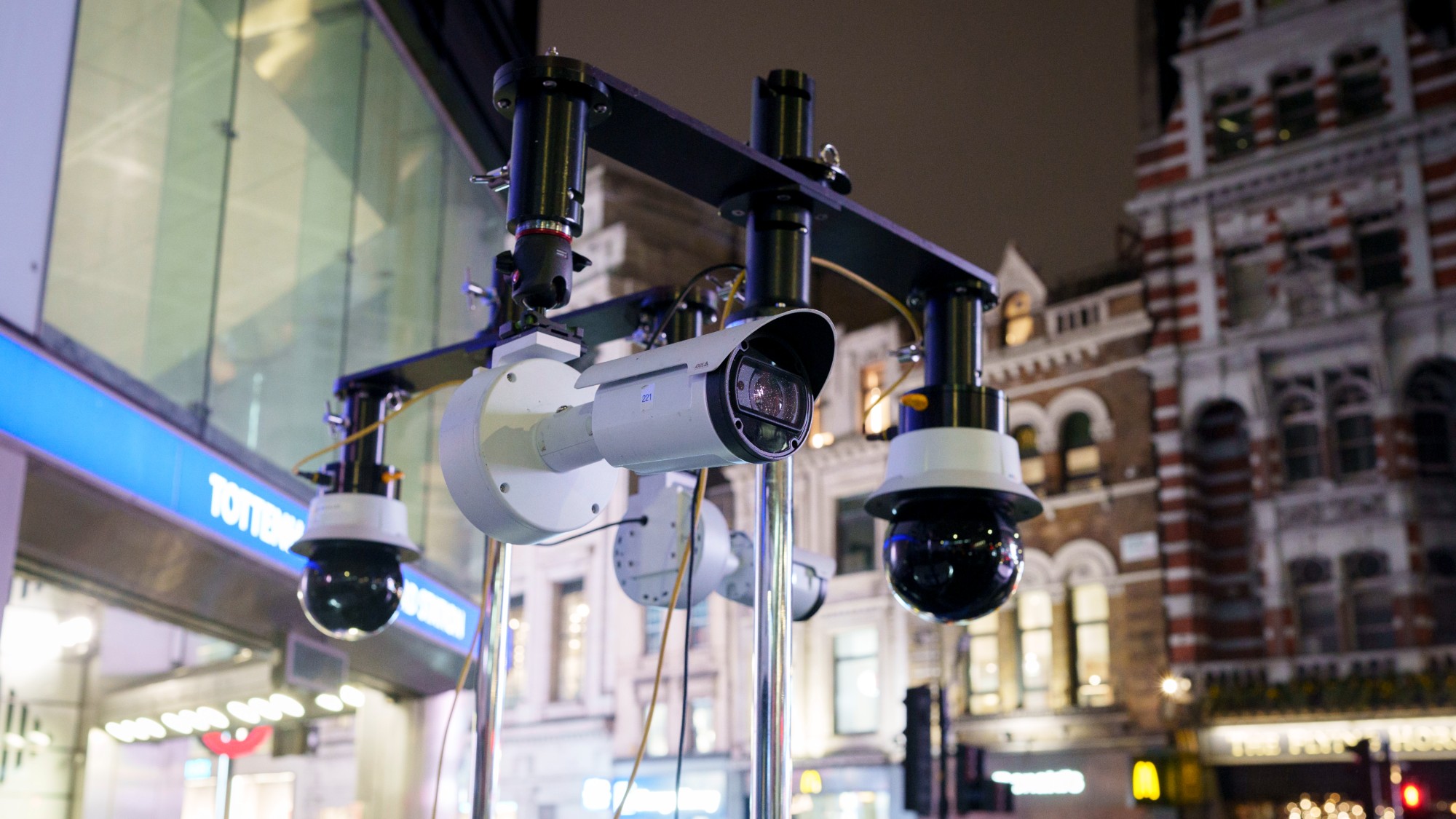Facial recognition technology and policing: an unholy alliance?
Grey area for AI leads to claims that everyone is being put into ‘a perpetual police line-up’

A free daily email with the biggest news stories of the day – and the best features from TheWeek.com
You are now subscribed
Your newsletter sign-up was successful
Clearview, the company behind one of the most advanced models of facial recognition software, claims to have run more than a million searches on behalf of US police.
Hoan Ton-That, Clearview’s CEO, told the BBC that the company’s software is used by hundreds of police forces across the US. The estimate of a million searches comes from Clearview itself and has not been confirmed by police, but in what the BBC described as a “rare admission”, Miami police told the broadcaster it uses this software “for every type of crime”.
The Clearview system “allows a law enforcement customer to upload a photo of a face and find matches in a database of billions of images it has collected”, said the BBC.
The Week
Escape your echo chamber. Get the facts behind the news, plus analysis from multiple perspectives.

Sign up for The Week's Free Newsletters
From our morning news briefing to a weekly Good News Newsletter, get the best of The Week delivered directly to your inbox.
From our morning news briefing to a weekly Good News Newsletter, get the best of The Week delivered directly to your inbox.
It then provides “links to where matching images appear online”, added the broadcaster, and “is considered one of the most powerful and accurate facial recognition companies in the world”.
Recent advances in AI have led to campaigners across the globe calling on governments and states to ban the use of facial recognition software and other forms of biometric identification.
The civil liberties group Big Brother Watch has been running a “stop facial recognition” campaign as the UK government works out how to regulate AI technologies. Twelve human rights groups also recently called on EU legislators to ban the use of facial recognition software by the police.
‘A perpetual police line-up’
Around the world, there are “almost no laws around the use of facial recognition by police” and critics argue that US forces’ use of Clearview puts everyone into a “perpetual police line-up”, said the BBC.
A free daily email with the biggest news stories of the day – and the best features from TheWeek.com
“Whenever they have a photo of a suspect, they will compare it to your face,” Matthew Guariglia, from the Electronic Frontier Foundation, told the broadcaster. “It’s far too invasive.”
Late last year a report from the Minderoo Centre for Technology and Democracy, at the University of Cambridge, recommended that facial recognition technology be banned from use in streets, airports and any public spaces – “the very areas where police believe it would be most valuable”, said The Guardian. The study examined three deployments of facial recognition technology in UK policing, one by the Metropolitan Police and two by South Wales Police.
The report said: “We have shown how police use of facial recognition fails to incorporate many of the known practices for the safe and ethical use of large-scale data systems. This problem moves well beyond the concern of bias in facial recognition algorithms.”
‘Like a traditional tip-off’
But assistant chief of Miami police Armando Aguilar said his team used the Clearview system like a traditional tip-off, and that it had helped solve several murders. “We don’t make an arrest because an algorithm tells us to,” he said. “We either put that name in a photographic line-up or we go about solving the case through traditional means.”
Within UK law enforcement, facial recognition technology “is seen as potentially the next big crime-fighting innovation, on a par with the introduction of fingerprints”, said The Guardian.
“Facial recognition has its benefits,” wrote Asress Adimi Gikay, senior lecturer in AI at London’s Brunel University, for The Conversation. Additionally, with the UK and US having among the highest number of CCTV cameras in the world, “worrying about live facial recognition is inconsistent with our tolerance of all this surveillance”.
Instead of an outright ban of the technology, Gikay favours “a statutory law to clarify when this technology can be deployed”. Under the EU’s proposed law, facial recognition could only be deployed against those suspected of crimes carrying a maximum sentence of upwards of three years – “a reasonable cut-off”, he concluded.
Jamie Timson is the UK news editor, curating The Week UK's daily morning newsletter and setting the agenda for the day's news output. He was first a member of the team from 2015 to 2019, progressing from intern to senior staff writer, and then rejoined in September 2022. As a founding panellist on “The Week Unwrapped” podcast, he has discussed politics, foreign affairs and conspiracy theories, sometimes separately, sometimes all at once. In between working at The Week, Jamie was a senior press officer at the Department for Transport, with a penchant for crisis communications, working on Brexit, the response to Covid-19 and HS2, among others.
-
 Political cartoons for February 20
Political cartoons for February 20Cartoons Friday’s political cartoons include just the ice, winter games, and more
-
 Sepsis ‘breakthrough’: the world’s first targeted treatment?
Sepsis ‘breakthrough’: the world’s first targeted treatment?The Explainer New drug could reverse effects of sepsis, rather than trying to treat infection with antibiotics
-
 James Van Der Beek obituary: fresh-faced Dawson’s Creek star
James Van Der Beek obituary: fresh-faced Dawson’s Creek starIn The Spotlight Van Der Beek fronted one of the most successful teen dramas of the 90s – but his Dawson fame proved a double-edged sword
-
 Claude Code: Anthropic’s wildly popular AI coding app
Claude Code: Anthropic’s wildly popular AI coding appThe Explainer Engineers and noncoders alike are helping the app go viral
-
 Will regulators put a stop to Grok’s deepfake porn images of real people?
Will regulators put a stop to Grok’s deepfake porn images of real people?Today’s Big Question Users command AI chatbot to undress pictures of women and children
-
 Most data centers are being built in the wrong climate
Most data centers are being built in the wrong climateThe explainer Data centers require substantial water and energy. But certain locations are more strained than others, mainly due to rising temperatures.
-
 The dark side of how kids are using AI
The dark side of how kids are using AIUnder the Radar Chatbots have become places where children ‘talk about violence, explore romantic or sexual roleplay, and seek advice when no adult is watching’
-
 Why 2025 was a pivotal year for AI
Why 2025 was a pivotal year for AITalking Point The ‘hype’ and ‘hopes’ around artificial intelligence are ‘like nothing the world has seen before’
-
 AI griefbots create a computerized afterlife
AI griefbots create a computerized afterlifeUnder the Radar Some say the machines help people mourn; others are skeptical
-
 The robot revolution
The robot revolutionFeature Advances in tech and AI are producing android machine workers. What will that mean for humans?
-
 Facial recognition: a revolution in policing
Facial recognition: a revolution in policingTalking Point All 43 police forces in England and Wales are set to be granted access, with those against calling for increasing safeguards on the technology